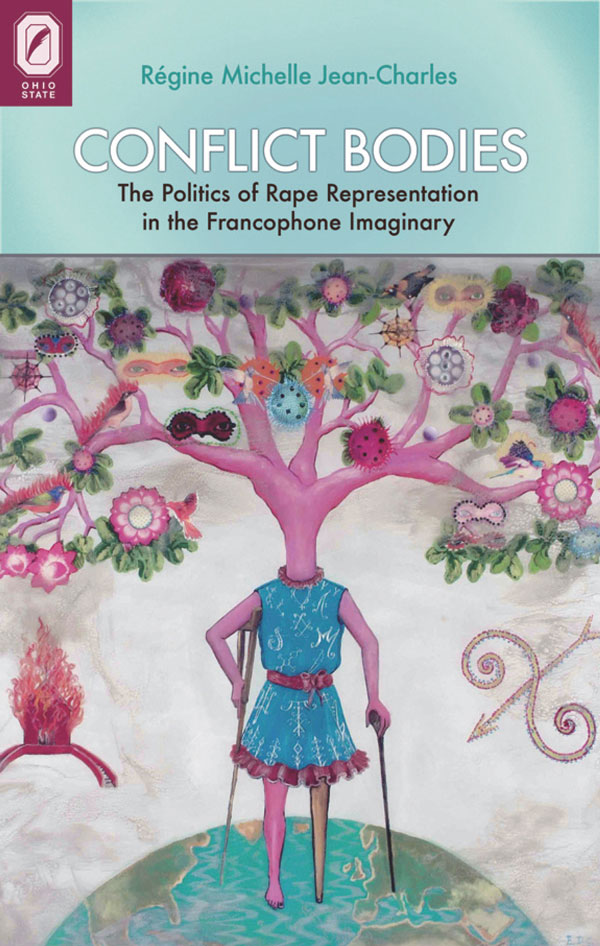Conflict BodiesThe Politics of Rape Representation in the Francophone ImaginaryRégine Michelle Jean-CharlesTransoceanic Studies |
 2/24/2014 Literary criticism/ 320 pp. 6x9 
$69.95 cloth 978-0-8142-1246-2 Add cloth to shopping cart $29.95 paper 978-0-8142-5293-2 Add paper to shopping cart $14.95 CD 978-0-8142-9349-2 Add CD to shopping cart Shopping Cart Instructions Review/Change Shopping Cart & Check-out | |||
|
|
“In the field of francophone postcolonial gender studies, Conflict Bodies is groundbreaking. Régine Michelle Jean-Charles’s theoretical sophistication brings her analysis into a broader intellectual discussion that includes feminist studies, trauma studies, and rape representation.” —Cilas Kemedjio, director of the Frederick Douglass Institute for African and African-American Studies, University of Rochester “The notion of ‘conflict bodies” resonates not only with ‘conflict zones’ but
with the popular expression ‘conflict diamonds/ Conflict Bodies: The Politics of Rape Representation in the Francophone Imaginary explores the relationship between rape and narratives of violence in francophone literature and culture. The book offers ways to account for the raped bodies beneath the conflicts of slavery, genocide, dictatorship, natural disasters and war—and to examine why doing so is necessary. Through a feminist analysis of the rhetoric and representation of rape in francophone African and Caribbean cultural production, Conflict Bodies examines theoretical, visual, and literary texts that challenge the dominant views of postcolonial violence. Using an interdisciplinary and comparative framework to consider different contexts—Haiti, Guadeloupe, Rwanda, and Democratic Republic of the Congo—Régine Michelle Jean-Charles illuminates how analyzing survivors’ subjectivities, stories, and embodied experiences provides a nuanced understanding of what is at stake in rape representation. Referencing theories from francophone literary studies, transnational black feminisms, and rape cultural criticism to analyze novels, film, photography, drama, and documentaries, Jean-Charles argues that in today’s global climate—where one in three women worldwide has been raped, rape is being used as a tool of war, and rape myths circulate with vehemence—traditional “scripts of violence” that fail to account for sexual violence demand refusal, re-thinking, and re-imagining.
| |||


